What Can You Grow Hydroponically?
People ask frequently, “what can I grow hydroponically? The answer is really quite simple: You can grow a large variety of flowers, vegetables, and herbs hydroponically, with the exception of mushrooms that are a fungi.
Following is a listing of many plants that grow well in hydroponic systems, together with some information of interest
Growing flowers lends itself beautifully to hydroponic gardening as they can be grown in larger numbers, and can be grown year-round. Most flowers will do well in a hydroponic garden, and when seedlings are big enough, flowers can be cut or transplanted.
Flowers that are popular in the florist trade are usually good candidates for hydroponic culture. Why is this? Flowers like carnations, gerbera daisies, snapdragons, and lisianthus.
Many herbs will grow very well in a hydroponic setting. Some that do the best include anise, basil, catnip, chamomile, chervil, chives, cilantro, coriander, dill, fennel, lavender, marjoram, mint, oregano, parsley, rosemary, sage, tarragon and thyme. We could also consider wheatgrass, sprouts of various lentils also in this group.
- Anise is a feathery annual that grows from 1 to 2 feet high, has finely cut serrated leaves and very small, whitish flowers in flat clusters. Both the leaves and seeds have a warm, sweet licorice taste. It grows rapidly from seed and should be planted after all danger of frost has passed. The green leaves can be cut whenever plants are large enough and seeds may be gathered 1 month after flowers bloom. Anise leaves can be used in salads and as a garnish; the seeds flavor confections such as cakes and cookies.
- Basil growing can be accomplished throughout the year. Once mature, it can be harvested and trimmed weekly. It responds extremely well to hydroponic growing.
- Cannabis A psychoactive herb derived from the flowering tops of hemp plants. Cannabis is controlled under Schedule I of the Controlled Substances Act of 1970. It is also called bhang, ganja, grass, hashish, marijuana, pot, reefer, tea, and weed. It thrives and grows to a more vigorous plant in a hydroponic system. Most cannabis plants cultivated in the United States begin to flower by late August to early October and the plants are harvested from October to November.
- Catnip grows well in hydroponics in full sun or partial shade. It is a perennial herb of the mint family that will grow from 3-5 feet tall. It is easily propagated by seed, stem cuttings, or rootball division. Seed should be sown late in fall or early in the spring. Sow in plugs or seeds 12 to 15 weeks before sale. Seeds to finished plugs, 8 to 10 weeks; plugs to saleable plants, 3 to 5 weeks.
- Chamomile grows well in soilless culture. It is used to make chamomile tea and possesses a number of medicinal qualities. Chamomile grown outdoors prefers full sun but will tolerate some shade. From seeds to finished plugs, 6 weeks; plugs to saleable plants, 4 to 6 weeks.
- Chervil is a low light cool temperature crop. At temperatures above 20-25°C the plant will grow slowly and bolt to flower at an early age. Cool roots are critical to ensure good growth. Unless shade and special cooling is used, chervil is difficult to grow in the summer. Growing time to harvest is 4 weeks. It is the perfect winter crop. Best grown under low lights.
- Chives (a relative of the onion family) require little space and produce a continuous supply of seasoning for salads, and main dishes. Plants are hardy, tolerate a variety of growing conditions, are very aromatic and coveted by gourmet cooks.
- Cilantro (a relative of parsley) is a very successful hydroponic herb...it tolerates various pH conditions and lower light conditions. It requires little maintenance and reaches harvest stage within six weeks. It must be regularly trimmed or it will go to seed.
- Coriander / Cilantro is a parsley-type herb. When grown for leaves only, it is called cilantro but if allowed to continue growing to seed, it becomes what is called coriander. Coriander requires cool temperatures or it will bolt. Coriander grows best in full sun. Only the immature leaves are sold. (The mature "feathery” leaves that precede bolting are not desirable.) To grow in a slab: upon final harvest, pull out plants by the roots and re-seed directly into slab, or transplant. Harvest by cutting tops to crown and allowing to re-grow عé�é╜éô or pull up by the roots.
- Dill is a flavourful addition for hydroponic herb gardens and it produces new growth when harvested. Replacing spent plants with new seedlings every three to four weeks will insure a constant supply of dill. The compact fern leaf variety produces an abundance of lush growth thereby allowing for numerous cuttings from a single plant.
- Fennel is a perennial (but usually grown as an annual) that grows to about 3 to 4 feet tall. The leaves are finely divided into thread-like segments and are light green and resemble Dill. It grows easily from seed planted in spring and grows best in full sun. Plants need to be staked when 18 inches tall. Harvest seeds when ripe. Tender flower stalks just before they blossom are best for eating. Fennel seeds are used as a condiment. The leaves have an anise-like flavor and the stems can be eaten like celery. Seeds can be used in cheese spreads and vegetable dishes.
- Lavender Common name for a genus of fragrant herbs or shrubs that is grown as a decorative plant in the garden and for its sweet scent when dried. The dried flowers are used to fill sachets and to perfume clothing or linens. Commercially they, and the green parts, are used for making "oil of spike," aromatic vinegar, and lavender water. True lavender is not fully hardy in northern gardens. It is found more in the milder Pacific Coast and in the South. As seed produces variable plants, propagation is commonly by cuttings of selected plants. Sow seeds 20 to 26 weeks before sale; seeds to finished plugs, 12 to 16 weeks; plugs to saleable plant, 8 to 10 weeks.
- Marjoram A perennial herb usually grown as an annual for its fragrant foliage used to flavor dressings and meat dishes. It thrives in full sun. Since the seed is very small, it is best sown in flats in the greenhouse and the seedlings transplanted outside after all danger of frost has passed. Seeds to finished plugs, 6 weeks; plugs to saleable plant, 2 to 4 weeks.
- Mint Though they are usually grown on land, most mints are actually aquatic or semi-aquatic plants, doing their best in shallow water at the edges of ponds and streams. One of its adaptations to water is to spread by stolons that move out along the top of the soil or just under the surface. Spearmint, peppermint, and orange mint are three examples of mints that grow best in or close to water. Mint grown in water tends to have bigger, more lush foliage than land-grown mint, so it is ideal in hydroponic gardens.
- Oregano (Wild marjoram) is a hardy perennial that has sprawling stems that can grow to 2 feet tall. It has small pink or white flowers. Oregano can be propagated by seed or division. Stimulate foliage by cutting back flowers. Replant when plants become woody in 3 to 4 years. Leaves can be used fresh or preserved by drying. Oregano leaves are used extensively as a flavoring on pizza, or sprinkled over lamb. Used generously in Italian-type sauces.
- Parsley, is an herb well suited for hydroponic growing. Since it has a long tap root, the hydroponic container should be at least 12 inches deep for the best results.
- Rosemary A hardy evergreen sub-shrub grown mainly for its aromatic leaves that are used in culinary seasoning and yield an oil once used in medicine. Small light blue flowers are borne in April or May. The foliage is white and woolly on the under side and dark and shiny above. Plants can grow to a height of 6 feet and last for years but need protection from the cold. It prefers alkaline soil and full sun, but does tolerate moderate shade. Sow in seed flats 22 weeks before sale in 10 cm diameter pots. Seeds to finished plugs, 12 weeks; plugs to saleable plants, 10 weeks.
- Sage Common name for the hardy sub-shrub that is extensively grown for seasoning dressings used with rich meats, and for flavoring sausages and cheese. In hydroponics, it can be grown from seeds protected from cold and it prefers full sun. As the plants often exceed 3 feet in diameter, they should be grown at least that far apart. Sage leaves should be harvested prior to blooming and dried in a well-ventilated room on screens or in a commercial dryer, away from direct sunlight and then store in airtight containers. Sow in plugs or seed flats 12 to 14 weeks before sale. Seeds to finished plugs, 8 weeks; plugs to saleable plants, 4 to 6 weeks.
- Tarragon A perennial herb the leaves of which are used for seasoning, especially vinegar. Tarragon grows to two or three feet tall and likes moderate sun, preferring some shade during the hottest part of the day. Tarragon, during growth, seems to have little aroma; yet after the leaves or tops are harvested, the oils concentrate and start emitting their unique tarragon sweet smell. Plugs to saleable plants, 7 weeks.
- Thyme A plant of the mint family long cultivated and valued as a sweet herb. It has small lavender or pink flowers and is grown as a border plant, for ornament, or as an herb to be used for seasoning. Thyme should be planted in early spring. It is very hardy and will grow under most conditions. It prefers full sun. Thyme requires minimal fertilisation when grown in a hydroponic system. Sow in plugs 12 to 14 weeks before sale. Seeds to finished plugs, 6 to 8 weeks; plugs to saleable plants, 4 to 6 weeks.
- Watercress Low growing and trailing European perennial, a member of the mustard family. It is easily grown from seed. Its natural season is from mid-autumn until spring. After its flower buds appear the leaves become too rank in flavor to be edible. It is also easily grown indoors in a hydroponic system. Start plants with seed by sowing lightly in pots filled with a medium. Watercress has many culinary, decorative, and medicinal uses.
Vegetables that do well in a hydroponic garden include artichokes, beans, lettuce, spinach, cabbage, beets, asparagus, broccoli, cauliflower, Brussels sprouts and peas.
Vegetables that grow beneath the soil, such as onions, leeks, carrots, parsnips, potatoes, yams and radishes will also grow hydroponically, but may require extra care.
Some crops to avoid are corn, zucchini, summer squash, and vining plants. They can be grown in a hydroponic garden, but they are not space efficient, and just not practical. They will dominate your whole unit. Your resources are better spent on crops more suited to the compact systems.
Start seedlings in March-April, Transplant in May. Harvested by late August
- Tomatoes
- Green peppers
- Eggplants
- Cucumbers
- Green beans
- Squash (needs room)
- Melons (need room)
Two Growing Seasons: Early spring (February 20); and early fall (August 30)
- Broccoli and cauliflower
- Cabbage and bok choy
- Lettuces
- Spinach
- Swiss chard
- Peas, snow peas and sugar snaps
- Green onions
- Carrots (stubbies)
- Beans are a warm weather vegetable that grows best in a Hydroponic system. Seeds are planted in the growing medium and watered from below by the bubbling system. Seeds germinate in 16 days, and since green beans are similar to other vegetable crops, no special formulation is required. They will grow fast, plump, and delicious!
- Broccoli (from the Italian plural of broccolo, referring to "the flowering top of a cabbage") is a plant of the mustard/cabbage family. Broccoli has large flower heads, usually green in color, arranged in a tree-like fashion on branches sprouting from a thick, edible stalk. The mass of flower heads is surrounded by leaves. Many varieties of broccoli are perennial. It is planted in May to be harvested during the winter or early the following year in temperate climates. It grows well in hydroponic systems but since it is a heavy plant, needs sturdy staking.
- Cabbage / Bok Choy Purchase cabbage seedlings or grow your own in rockwool cubes. When they grow large enough to stand on their own, transfer them to the hydroponic pots and surround the cubes with a growing medium. If you have a system that uses "flushing"---fill the tray from beneath with a flood of water, then drain it immediately---wait until your seedlings have grown large enough that they will not float out of the medium. Cabbage may need as much as two feet to spread out, depending on variety.
- Cauliflower, a cruciferous vegetable, is in the same plant family as broccoli, kale, cabbage, and collards. It has a compact head (called a "curd"), with an average size of six inches in diameter. It is composed of undeveloped flower buds. The flowers are attached to a central stalk. A sturdy support is important to keep all but the roots out of the hydroponic solution. This can be accomplished by either using a layer of gravel through which the roots can reach the hydroponic nutrients, or setting up netting that allows the roots to grow through. The hydroponic nutrients can be delivered through drip irrigation twice a day. This will keep the roots from getting too moist. Broccoli and cauliflower are two of the most cost-efficient vegetables to grow because of the lower temperatures required and the lack of need to continuously provide hydroponic nutrients.
- Cucumber Their quick growth in relation to the time available makes cucumbers a good candidate for a fall crop. They are normally seeded in July, set in the greenhouse during the first week of August, and harvested from September to December. The cucumber responds like a semitropical plant. It grows best under conditions of high temperature, humidity, and light intensity and with an uninterrupted supply of water and nutrients. Under favorable and stable environmental and nutritional conditions and when pests are under control, the plants grow rapidly and produce heavily.
- Eggplant should be planted in full sun. The plants are easily injured by frost and will not do well with long periods of cool weather. Eggplants should be treated like tomatoes, the only difference being that eggplants like it warmer. Plant them from nursery stock, or starts, in the early spring. Allow 60-100 days to reach maturity from transplanting.
- Lettuce Leaf lettuce or semi-headed lettuce are the best varieties for hydroponic systems. Boston, black-seeded simpson, bibb or butter, or leaf lettuces are good choices. Lettuce requires additional light to grow successfully. It prefers cooler temperatures than warm weather crops. For best results, set your temperature controls for 75 degrees Fahrenheit during the daytime and 55 degrees Fahrenheit at night.
- Peas Snow peas like the cooler weather in the spring and fall, but don’t handle the hot summer well. The same can be said for spinach, celery and most salad greens although they are slightly more tolerant. Chinese peas, also called snow peas are a cool season crop and are sensitive to heat. Temperatures over 86 deg. F will cause poor pod set. Before planting, you will want to choose the peas you want to plant: English (garden), Chinese (snow) or Snap peas. English peas only produce edible seeds. Chinese peas produce edible pods as well as edible seeds, and snap peas do the same. The peas will be ready to be picked around three weeks after the flowers start to appear.
- Peppers, like tomatoes, prefer warm growing conditions. Most peppers plants also require staking. Suggested varieties to grow hydroponically include cubico, mazurka, Fellini, Narobi and gold flame for sweet peppers and jalapeno, habanero and cayenne for hot peppers. Light and temperature requirements to grow peppers hydroponically remain the same as growing hydroponic tomatoes.
- Spinach Start your spinach seeds in rockwool. Place seeds in drilled holes and then hang slightly above a hydroponic nutrient solution in and ebb and flow system. Germinating plants need to be raised slightly to allow more oxygen to reach their roots, as the rockwool is not a good conductor in this aspect. After the seeds have sprouted, move them to their permanent spot. Allow twenty square inches per plant. The hydroponic solution you use at this point is extremely important as no growing medium is needed with the ebb and flow system. Plants are placed on a netting-type material with their roots allowed to dangle in the solution. Spinach will not thrive in too much light.
- Tomatoes You will achieve more success if you start hydroponic tomatoes from transplants rather than seeds. Try indeterminate, disease resistant varieties such as Trust or Daniela. Good cocktail or cherry tomato varieties for hydroponic growing are Cherita and Sweet 100s. Productive heirloom cultivars include Moskvich and Thessaloniki. Hydroponic tomatoes require staking or other support systems to maintain the plant in an upright position. Tomatoes need flowing nutrient systems where the feeding solution moves past the roots on a schedule four to six times per day. For seedlings, set the temperatures between, 68 degrees and 72 degrees Fahrenheit suggests the University of Arizona. Gradually increase the daytime temperature 70-79 degrees Fahrenheit and decrease the nighttime temperature to 61-65 degrees Fahrenheit. Use supplemental lighting up to 18 hours per day to improve production. Pollinate through vibration or gently shaking stems with blossoms.
Fruit that can be grown hydroponically includes tomatoes, watermelon, cantaloupe, grapes, raspberries, blackberries, blueberries and strawberries. If you have the resources, some fruit trees can also be grown hydroponically, such as lemons or bananas.
Strawberry crops yield and produce well hydroponically. Growing strawberries hydroponically at home can produce enough berries to feed a family of four for a full year. Production doesn't need to stop seasonally as a hydroponic system can be set up outdoors or indoors with artificial light.
A hydroponic system can be tailored to suit almost any growing application; strawberries are well suited for hydroponic cultivation. Perfect water and nutrient levels can be easily maintained to produce plump, juicy, unblemished fruit.
Always use runners that are certified virus tested. Carefully remove the runners or new strawberry plant from its container. Remove as much of the earth as you can by gently shaking and massaging the roots. Submerge the entire root system in a bucket of cold water for about 10 minutes then rinse roots under cold running water to remove any remaining dirt. Be very careful to inflict as little damage as possible to the roots and tiny root hairs as too much breakage will seriously stress plants and impair growth. Dry or brittle leaves and roots should be removed at this time. Add enough of the growing medium to fill the pot making sure the crown of the strawberry is well above the surface. The crown requires light and fresh air as this is where new leaves and flowers grow. If submerged, the crown will rot causing the entire plant to die. Insert the pot into your hydroponic garden.
Once plants have finished fruiting and produced runners, clip the runners from the mother plant and root using conventional rooting methods. Once cuttings or runners have established a good root system, they must endure a chilling process. This may be done by placing rooted cuttings in a garage or cold cellar where temperatures remain between zero and 5C. Chilling may last anywhere from 10 days to five months depending on when your next crop is desired.
Other berries can be grown hydroponically, but they take up a great deal of space, and you would have to dedicate yourself to managing your system for berry growing, Although it can be done, but it is not one of the easier applications.
Although the benefits of hydroponics have sometimes been questioned, there seem to be many advantages in growing without soil. Some hydroponic growers have found they get yields many times greater when they switch from conventional methods. Because hydroponically grown plants dip their roots directly into nutrient-rich solutions, they get what they need much more easily than plants growing in soil, so they need much smaller root systems and can divert more energy into leaf and stem growth. With smaller roots, you can grow more plants in the same area and get more yield from the same amount of ground (which is particularly good news if you're growing in a limited area like a greenhouse or on a balcony or window-ledge inside).
Hydroponic plants also grow faster. Many pests are carried in soil, so doing without it generally gives you a more hygienic growing system with fewer problems of disease. Since hydroponics is ideal for indoor growing, you can use it to grow plants all year round. Automated systems controlled by timers and computers make the whole thing a breeze.
It's not all good news; inevitably there are a few drawbacks. One is the cost of all the equipment you need—containers, pumps, lights, nutrients, and so on.
Another drawback is the "ponic" part of hydroponics: there's a certain amount of toil / hard work involved. With conventional growing, you can sometimes be quite cavalier about how you treat plants and, if weather and other conditions are on your side, your plants will still thrive. But hydroponics is more scientific and the plants are much more under your control. You need to check them constantly to make sure they're growing in exactly the conditions they need (though automated systems, such as lighting timers, make things quite a bit easier).
Another difference (arguably less of a drawback) is that, because hydroponic plants have much smaller root systems, they can't always support themselves very well. Heavy fruiting plants may need quite elaborate forms of support system / cages etc.

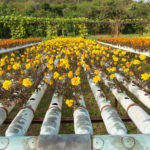
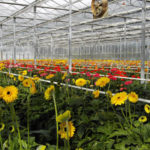
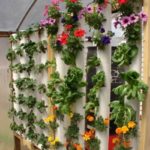
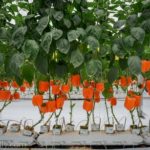
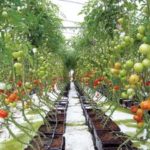
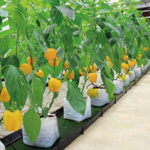
Hydroponics is getting popular and many people are aware of the advantages got from the hydroponics system of farming in many parts of India. Hydroponics is getting spread in most of the commercially successful cities of our country because the system can get good reach among the people if it gets launched in big cities which have more population from various states, districts and even from various countries. In that way, hydroponics in Bangalore is getting successful with many new branches of hydroponics centers including hydroponics training centers.